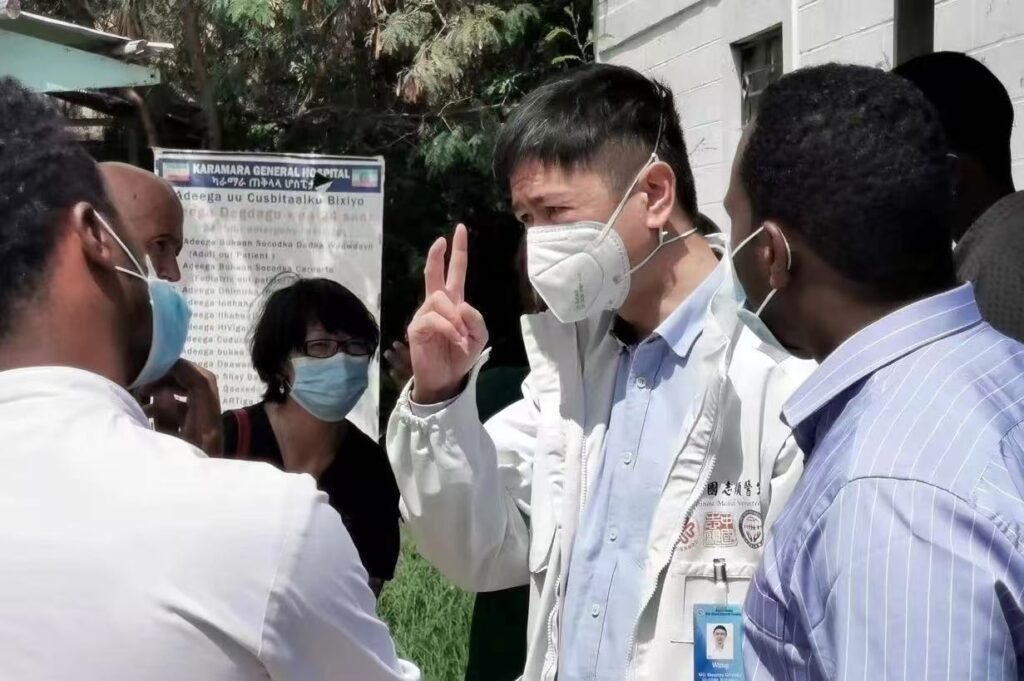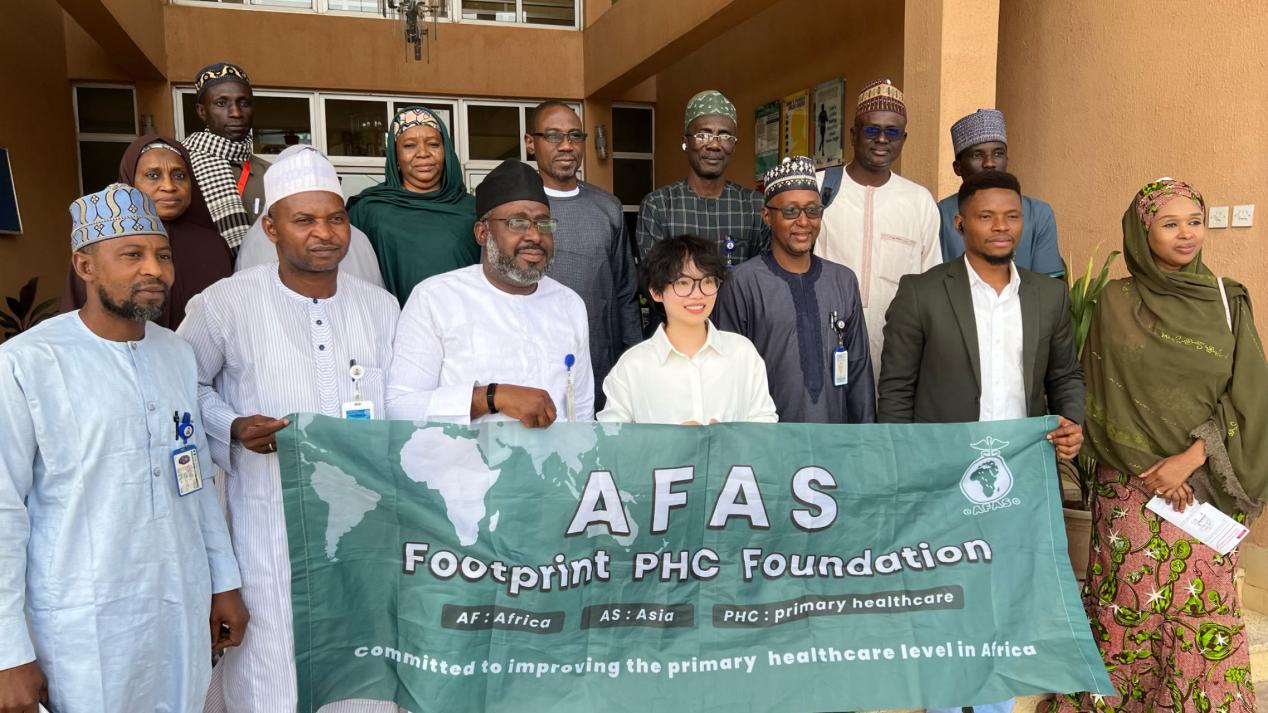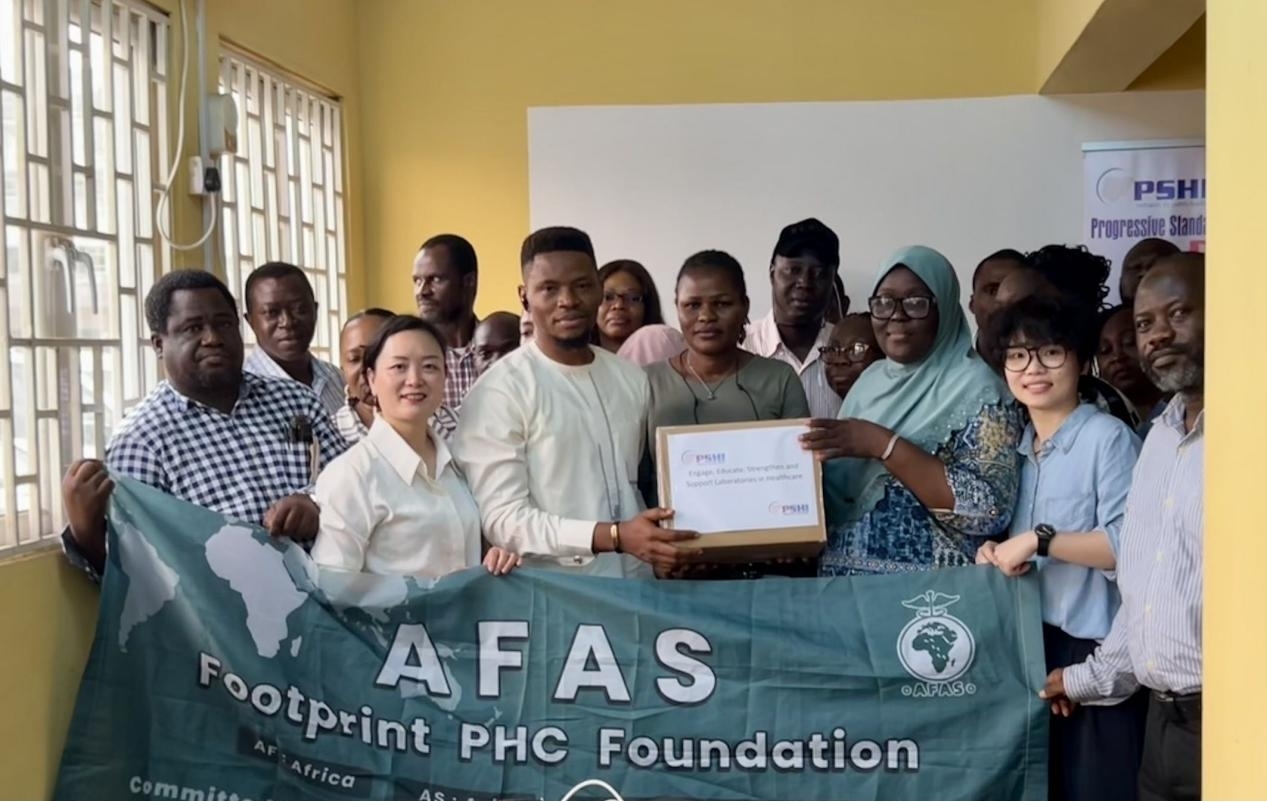Dr. Wang’s connection with Africa dates back to 2006. That year, the China-Africa Cooperation Forum held its first Leaders’ Summit. At the meeting, China announced a three-year action plan to aid Africa. The Hangzhou Youth League Committee received a task to organize the recruitment of 15 young doctor volunteers to go to Africa for one year. With the support of his pregnant wife, he signed up for the Hangzhou Medical Aid Team to Africa.
Because he had 10 years of surgical experience in grassroots hospitals, the interview process went smoothly. After arriving in Ethiopia, he was assigned to the Arba Minch Hospital in the Southern State. It is more than 500 kilometers away from Addis Ababa, the capital of Ethiopia, and takes 13 hours by car. It is the home of the world’s most primitive tribe, the “Mursi people”.

Before he came, there was no surgeon in this area with a population of 2 million. The only one who dared to perform surgery was a general practitioner. For the simplest appendicitis surgery, he could make a 30-centimeter incision on the patient’s stomach.
He remembered the scene when he first walked into the operating room. It was a house of more than 30 square meters, and the smell of blood in the air attracted flies. There was only a shabby bed, no ECG monitoring equipment, and an oxygen cylinder connected to a red ball, which needed to be squeezed manually for oxygen supply.
A boy who was bitten by a hippopotamus had large areas of torn abdominal and leg muscles, and his organs flowed out of the body. Dr. Wang and his colleagues had never seen such wounds in China, and their scalps were really numb.
Ethiopia’s healthcare system continues to struggle, especially in rural areas where many people lack access to even the most basic medical care. One of the biggest problems Ethiopia faces is the unequal distribution of healthcare resources. Most doctors and hospitals are located in larger cities like Addis Ababa, while rural areas are left with far fewer options. Though the government has made efforts to train more medical professionals, these doctors often don’t have the experience or support needed to manage complicated cases, especially in underserved regions. This leaves rural communities vulnerable, with limited access to the healthcare they desperately need. Dr. Wang performed more than 600 operations a year, and 12 patients died. This mortality rate is definitely higher in China, but over there, they did their best.
Half of the 600 operations were for acute intestinal obstruction. This is related to the local dietary habits of Ethiopians. Their staple food is called injera, a flatbread made from fermented teff. It is highly acidic and easily forms lumps in the intestines. In the past, patients with severe intestinal obstruction would just wait to die at home. After he went there, they realized that they might still be saved if they were sent to the hospital.

Surgery for intestinal obstruction is actually not difficult. Most patients die while waiting for surgery. One night, a patient with intestinal obstruction came to the emergency room, and Dr. Wang told the nurse to prepare for surgery. The nurse told him directly that it could not be done at night because all the surgical instruments had been used up and they had not had time to disinfect them. When Dr. Wang asked the nurse to hurry up and disinfect them, she said that the people in the supply room had gone off work and had to wait until tomorrow morning. As a result, the patient died in the middle of the night.
Maternal health, in particular, highlights the severity of the problem. When Dr. Wang first came to Ethiopia, the maternal mortality rate was alarmingly high. Nearly 10% of pregnant women faced life-threatening complications. While recent improvements have reduced that figure to around 1 in 1,000, the situation remains dangerous in rural areas where many women still don’t have access to skilled medical care during childbirth. He also performed many caesarean sections, and many pregnant women did heavy work with big bellies. Usually they gave birth at home first, and only when they were really in labor would they be sent to the hospital, where many fetuses died of asphyxiation.
After 16 months of construction, Dr. Wang’s Aifei Hospital officially opened on November 5, 2019. This is a 14-story modern hospital built in Ethiopia with a total investment of more than 200 million yuan. Dr. Wang’s hospital, regarded as the best in Ethiopia, provides a rare level of care with modern equipment and an international team of doctors. But as Dr. Wang points out, one hospital can’t fix an entire country’s healthcare issues. Ethiopia needs more hospitals and clinics in rural areas, along with more trained healthcare workers to provide the necessary services. Without significant changes, millions of Ethiopians will continue to face unnecessary suffering and loss.

To help address these issues, Dr. Wang’s hospital runs community outreach programs, offering free medical check-ups to over 300 people each year. While this makes a difference for those involved, it’s only a small piece of what is needed. The healthcare crisis in Ethiopia is far larger, and without more support, it’s hard to imagine substantial progress being made.

The COVID-19 pandemic only made things worse, exposing just how fragile Ethiopia’s healthcare system really is. Dr. Wang’s hospital was able to adapt quickly, becoming the first in the country to set up a negative-pressure room to treat COVID-19 patients. Over the course of the pandemic, the hospital treated more than 1,200 patients, including several high-ranking officials, and managed to maintain an impressively low death rate of just 13. However, most other hospitals in the country weren’t as prepared, and many struggled to manage the influx of patients with limited resources.
Looking ahead, Dr. Wang believes there are two main priorities for improving Ethiopia’s healthcare system. First, the country needs to build more healthcare infrastructure in rural areas. This includes constructing more hospitals, clinics, and training more doctors and nurses who can serve these communities. Second, there’s a real opportunity to integrate traditional African medicine with modern medical practices. Dr. Wang sees this as a way to create a morecomprehensive healthcare system that could benefit all Ethiopians, especially those in remote areas.

Dr. Wang’s experiences in Ethiopia reveal just how much work still needs to be done. His hospital may be a leader in the country, but the healthcare system overall remains in critical condition. Ethiopia cannot tackle these challenges alone—it needs help.
This is where you can make a difference. By supporting the Footprint PHC Foundation, you can contribute to improving healthcare access in Ethiopia. Your donations can help provide the resources needed to build more hospitals, train more doctors, and bring lifesaving care to those who need it most. Every contribution matters. Together, we can work towards a future where everyone in Ethiopia has access to the healthcare they deserve.




